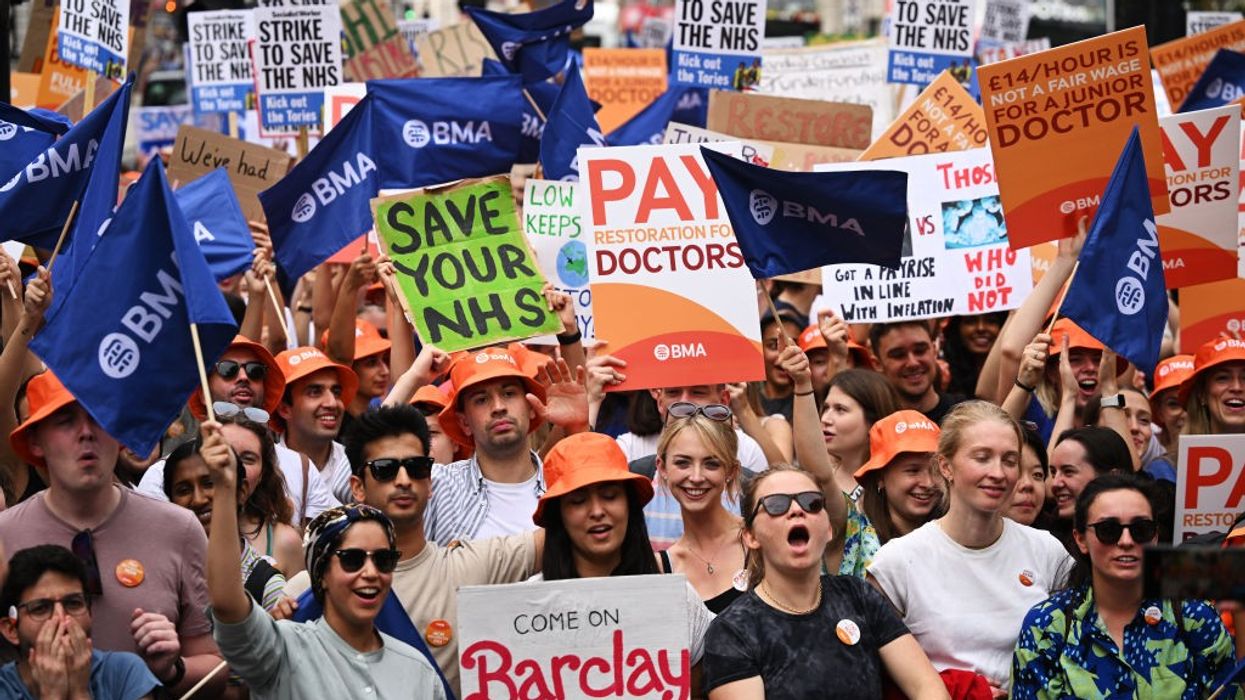An experimental Boehringer Ingelheim drug achieved “unprecedented” benefits in patients with an advanced form of lung cancer who had already received other treatments for their disease, researchers said at the American Association for Cancer Research meeting in Chicago.
The drug, zongertinib, targets the HER2 protein on cancer cell surfaces.
Among 75 patients with pre-treated non-small cell lung cancer and mutations in HER2 known as tyrosine kinase domain (TKD) mutations, 71 per cent had significant tumor shrinkage during treatment with zongertinib. NSCLC is the most common type of lung cancer.
“A 71 per cent response rate is unprecedented in this cancer subtype, and not only is the data strong in showing that this treatment works, but zongertinib has the added convenience of being a once-daily oral therapy,” study leader Dr. John Heymach of the M.D. Anderson Cancer Center in Houston said in a statement.
“When you also consider the improved safety profile compared to less selective inhibitors, this suggests a promising approach for patients in need of new treatments," Heymach said. "That’s exciting because just a few years ago these patients had no effective targeted therapies.”
On average, patients’ disease remained stable, without getting worse, for more than a year, according to a report of the study published in The New England Journal of Medicine.
“This new data is particularly encouraging for patients who had disease progression after prior therapies, because it indicates that the resistance mechanisms to those therapies does not necessarily confer cross-resistance to zongertinib,” Heymach said.
His team also reported early positive results in 20 patients with non-TKD mutations and 31 patients with TKD mutations who previously were treated with a different HER2-targeting drug, although these patients haven’t been followed long enough to draw firm conclusions.
A GSK drug given to treat certain early-stage cancers caused tumors to disappear in 80 per cent of patients in a mid-stage trial, allowing them to avoid surgery, researchers reported at the AACR meeting.
The study participants had so-called mismatch repair deficient, or microsatellite instability-high, cancers, in which the body’s DNA repair system, responsible for fixing errors in cell structure and function, is not working properly.
About half of the patients had rectal cancers; the rest had other malignancies including esophagogastric, colon, hepatobiliary, genitourinary, and gynecologic tumors. About two-thirds had evidence of cancer spread to their lymph nodes.
All were good candidates for surgery, but instead received GSK's immunotherapy Jemperli (dostarlimab) for six months.
Among the 103 patients who completed the treatment, 84 had a clinical complete response, meaning no sign of cancer, and 82 did not undergo surgery, according to a report of the study published in The New England Journal of Medicine.
Two years later, 92 per cent remained free of cancer recurrence.
Three patients with rectal cancer were able to conceive and deliver healthy children.
The majority of patients with incomplete responses still had significant tumor shrinkage, the researchers found.
Overall, 95 per cent of the patients had no or only mild side effects.
Jemperli, which is approved to treat a type of endometrial cancer that has recurred or spread, helps the immune system to recognize and attack cancer cells.
If the results are confirmed in larger trials, “immunotherapy alone could potentially replace more invasive treatments, such as surgery, chemotherapy, and radiation, offering patients a significantly improved quality of life,” study leader Dr. Andrea Cercek of Memorial Sloan-Kettering Cancer Center in New York said in a statement.
Adding Merck’s blockbuster immunotherapy Keytruda before and after surgery to usual treatments improves outcomes for patients with newly diagnosed head and neck squamous cell carcinoma, according to trial results presented at the meeting.
Typically, these patients undergo surgery followed by radiation with or without chemotherapy.
“This paradigm has been in place for more than two decades, and unfortunately outcomes for many patients continue to be unsatisfactory,” study leader Dr. Ravindra Uppaluri of the Brigham and Women’s Hospital in Boston said in a statement.
The new trial results show that before surgery, treatment with Keytruda can enhance immune responses and start to act on tumor killing. And after surgery the drug “can address any leftover cancer cells that may still be present,” Uppaluri said.
In the trial, 714 patients undergoing surgery for stage 3-4 head and neck squamous cell carcinoma (HNSCC) including in the larynx, hypopharynx, and oral cavity received either Keytruda before and after surgery, or usual care.
Patients who received Keytruda were more likely to have at least a 90 per cent reduction in the size of their tumor before undergoing surgery, compared to those in the control group, the researchers found.
The median time to cancer progression, relapse, or death was 51.8 months for patients treated with Keytruda compared with 30.4 months with usual care alone.
Among patients with the highest level of the PD-1 cell-surface protein targeted by Keytruda, the median time to those events was 59.7 months in the Keytruda group and 26.9 months in the standard-of-care group.
After accounting for individual patient characteristics, and with half of patients having at least 38.3 months of follow-up, those treated with Keytruda were at least 27 per cent less likely to have experienced recurrence.
Furthermore, treatment with Keytruda (pembrolizumab) reduced the risk of adverse events by 34 per cent, researchers reported. Keytruda, the world's biggest-selling prescription medicine, is approved for many types of cancer.
“This new information supports changing the current standard of care” to now give Keytruda pre- and post-operatively, Uppaluri said. “For the first time in more than 20 years, patients with this challenging disease have a new therapeutic approach.”












